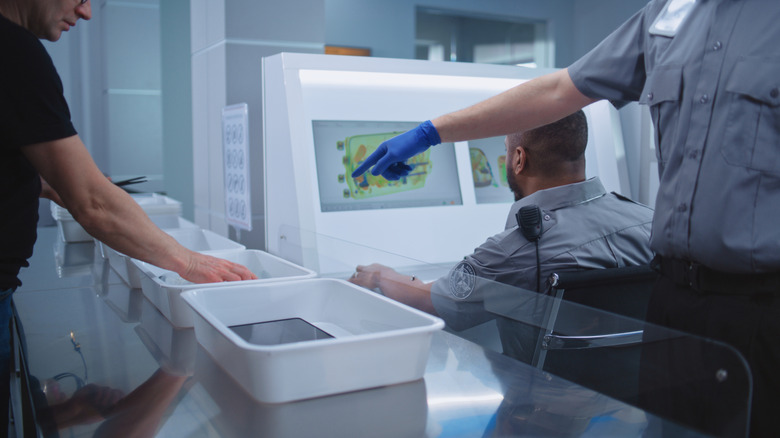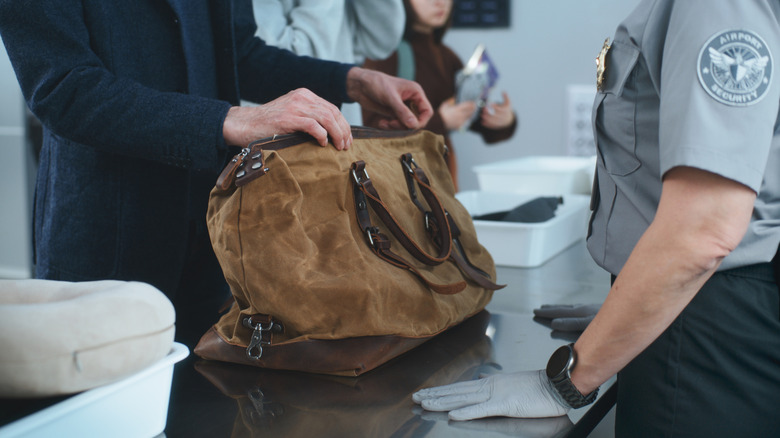Why TSA Agents Might Ask You To Turn Your Devices On Before Going Through Security
When it comes to preparing for a flight, there's so much you need to keep in mind. From ensuring your checked luggage meets the allotted weight requirements to getting your boarding pass, there's a lot to handle before you even reach security. Although it can seem like Transportation Security Administration rules are always annoyingly inconsistent, there is a method to the madness. TSA agents are trained to spot all sorts of inconsistencies and potential dangers, from the clothes you wear to the tech you're bringing on board a flight.
When you're gearing up for your next domestic or international trip, you'll want to ensure that any electronics you're bringing with you are at least partially charged. This means that laptops, smartphones, and other electronics need to have enough battery charge that you can turn them on if a TSA agent asks you to. This rule for U.S.-bound flights has been in place since 2014, but it's still one that many travelers overlook.
But why does the TSA want you to power on your devices for them? Rest assured, the TSA agents you encounter are not interested in scanning your photos or seeing your personal info. They're really just checking to see whether or not the device is working as intended. Electronics can be used to conceal hidden explosives or otherwise modified as explosive devices, so if your phone doesn't turn on properly, it will raise red flags with the TSA. The chances of a phone carrying an explosive might be slim, but TSA is not about to take that chance. If your device doesn't turn on, you'll probably be pulled aside for a secondary screening. If you can't provide proof that your device is faulty, the TSA might confiscate it.
How to prep your electronics for TSA security
A few helpful tips will streamline your security check experience and get you to your gate well before departure. If you are traveling with electronics, as most of us are, keep them powered on and charged ahead of time. This way, if a TSA agent does ask you to power up your laptop, phone, or tablet — and there's no guarantee they will — you're already a step ahead.
Be sure to place your electronics in your hand luggage in a place where they can easily be reached and placed in the plastic trays, if your airport requires that. Some airports no longer require travelers to separate electronics from the rest of their hand luggage, but many still do. Placing laptops in particular in separate trays allows for clearer X-ray scans, which ultimately streamlines the whole security process. TSA agents often ask that laptops and other large electronics be placed their own separate bins with no other items on top. Slim laptop sleeves are usually okay, but if yours is bulky or contains metal, it's best to remove that as well. Still, it's better to go through that hassle with your carry-on than stash your laptop in your checked luggage, where it might get broken, lost, or stolen. Remember that lithium batteries are strictly prohibited from checked luggage and must be kept in your carry-on bag.

